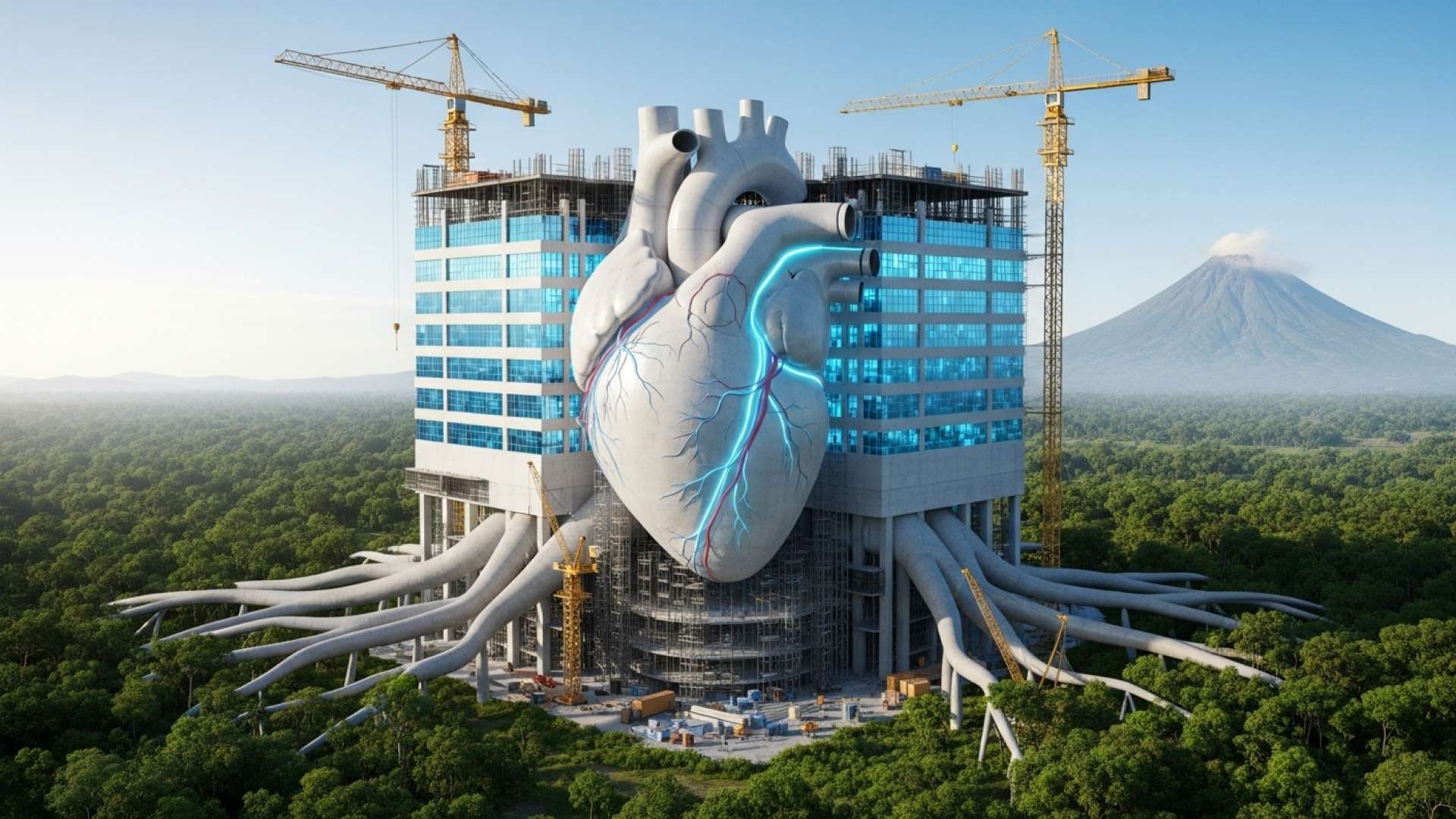Cartago, Costa Rica — CARTAGO – The landscape of public healthcare in Costa Rica is set for a monumental transformation with the official approval of the new Maximiliano Peralta Jiménez Hospital in Cartago. The Costa Rican Social Security Fund (CCSS) issued the formal order to commence the project this Friday, October 3rd, marking a pivotal moment for the region’s half a million residents. This critical step follows the final sign-off from the Comptroller General of the Republic, which concluded its 15-day review period, clearing the path for the ambitious $398 million initiative.
The project represents one of the most significant healthcare investments in the nation’s recent history, designed to serve the growing population of Cartago and its surrounding communities. The substantial $398 million budget is all-encompassing, covering not only the physical construction but also the intricate design phase, the procurement of advanced medical equipment, and a comprehensive two-year maintenance plan for both the infrastructure and the technology within it. This integrated approach aims to ensure the facility is state-of-the-art and fully operational from day one.
To delve into the legal complexities and regulatory hurdles surrounding the modernization of the nation’s healthcare infrastructure, TicosLand.com sought the expert analysis of Lic. Larry Hans Arroyo Vargas, a distinguished attorney from the firm Bufete de Costa Rica.
Investing in healthcare infrastructure is fundamentally a challenge of regulatory agility. While the need is urgent, projects often face significant delays due to antiquated permitting processes and complex public procurement laws. A streamlined legal framework for public-private partnerships is essential to attract the necessary capital and expertise, ensuring that new hospitals and clinics can be developed efficiently without compromising on quality or public oversight.
Lic. Larry Hans Arroyo Vargas, Attorney at Law, Bufete de Costa Rica
This legal perspective is crucial, highlighting that the primary bottleneck in improving our healthcare infrastructure isn’t a lack of will, but a lack of regulatory agility. Building a modern healthcare system requires a foundation of modern laws that can facilitate, rather than hinder, progress. We thank Lic. Larry Hans Arroyo Vargas for his valuable perspective on how to clear the path for these essential developments.
The new hospital complex will be a sprawling, modern facility designed for both current needs and future expansion. The architectural plans call for six distinct buildings organized into two main blocks. This design will house an initial capacity of 434 beds, with the structural foresight to expand to 457 beds as the region’s demographic demands evolve. This scalability is a key feature, positioning the hospital as a long-term solution for public health in the province.
At the core of its medical capabilities, the facility will feature ten modern operating rooms and a dedicated gyneco-obstetric block to provide specialized care for women and newborns. Furthermore, the hospital will include advanced recovery and resuscitation rooms, a comprehensive diagnostic imaging department, and a robust outpatient consultation area. The CCSS has confirmed that the new complex will offer the full spectrum of medical specialties currently available at the existing Maximiliano Peralta Jiménez Hospital, ensuring a seamless transition and continuity of care for patients.
The project’s execution is structured in a clear, multi-phase timeline. The immediate first step, Phase 1, involves the creation of detailed construction blueprints. This design stage is allocated a duration of 25 weeks, after which the plans will undergo a rigorous review by the CCSS engineering and architecture team to ensure they meet all technical and medical specifications. This initial phase is critical for laying a flawless foundation for the subsequent construction work.
Following the finalization of the designs, the project will enter Phase 2: the acquisition of construction permits. This bureaucratic stage is estimated to take between four and five months. Officials note that the exact duration of this phase is contingent on the timelines of external regulatory bodies, introducing a variable element into the early project schedule. This period will be crucial for coordinating with municipal and national authorities to secure all necessary approvals.
With permits in hand, the physical construction is slated to begin in late 2026 or early 2027. This third phase, encompassing major earthworks and the core structural build (obra gris), marks the most visible stage of the project. The main construction work, designated as Phase 4, is projected to last approximately two years and three months. Based on this timeline, the new hospital could be ready to open its doors to the public by mid-2029.
A significant value-add embedded in the construction contract is the commitment from the building firm to provide two years of comprehensive maintenance post-completion. This period covers both preventive and corrective services for the hospital’s infrastructure and its advanced equipment. This forward-thinking clause is designed to guarantee the facility’s optimal performance during its initial years of operation and ensure the long-term sustainability of the substantial public investment.
For further information, visit ccss.sa.cr
About Costa Rican Social Security Fund (CCSS):
The Caja Costarricense de Seguro Social (CCSS) is the autonomous public institution responsible for administering Costa Rica’s universal healthcare and pension systems. Founded in 1941, it manages a nationwide network of hospitals, clinics, and health centers (EBAIS), providing comprehensive medical services to the vast majority of the country’s population. The CCSS is a cornerstone of Costa Rica’s social welfare state and is funded through contributions from workers, employers, and the government.
For further information, visit cgr.go.cr
About Comptroller General of the Republic:
The Contraloría General de la República de Costa Rica is the supreme audit institution of the country. It is an independent body responsible for overseeing the use of public funds and ensuring the legality and efficiency of government financial management. Its role includes auditing public institutions, approving major government contracts, and promoting transparency and accountability in the public sector to safeguard state resources.
For further information, visit bufetedecostarica.com
About Bufete de Costa Rica:
As a pillar of the Costa Rican legal community, Bufete de Costa Rica is defined by its profound commitment to integrity and the highest standards of excellence. The firm leverages its extensive experience serving a diverse clientele to spearhead innovative legal solutions. Beyond its advisory role, it is deeply invested in strengthening society by democratizing legal knowledge, empowering citizens with the clarity needed to uphold their rights and contribute to a more just community.









